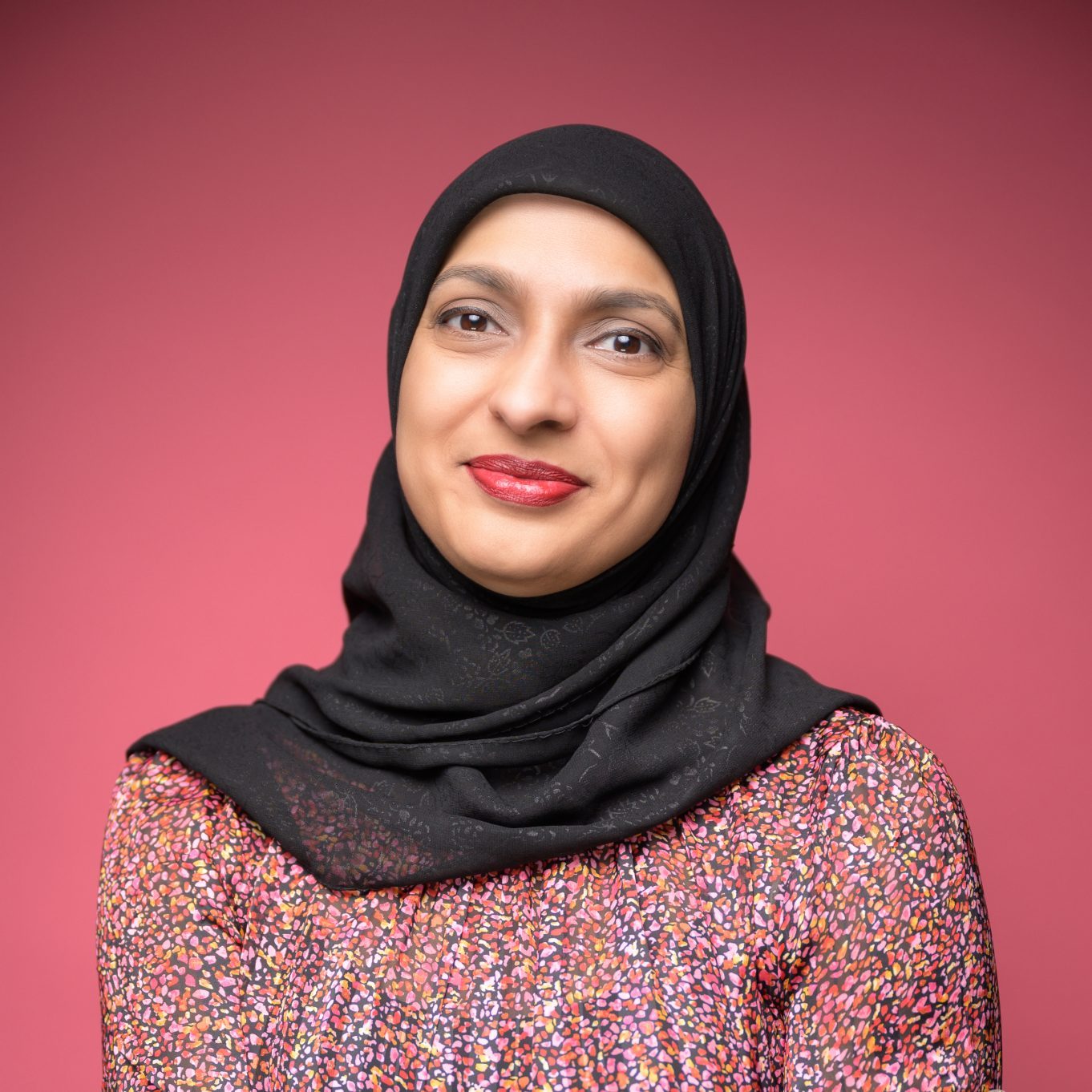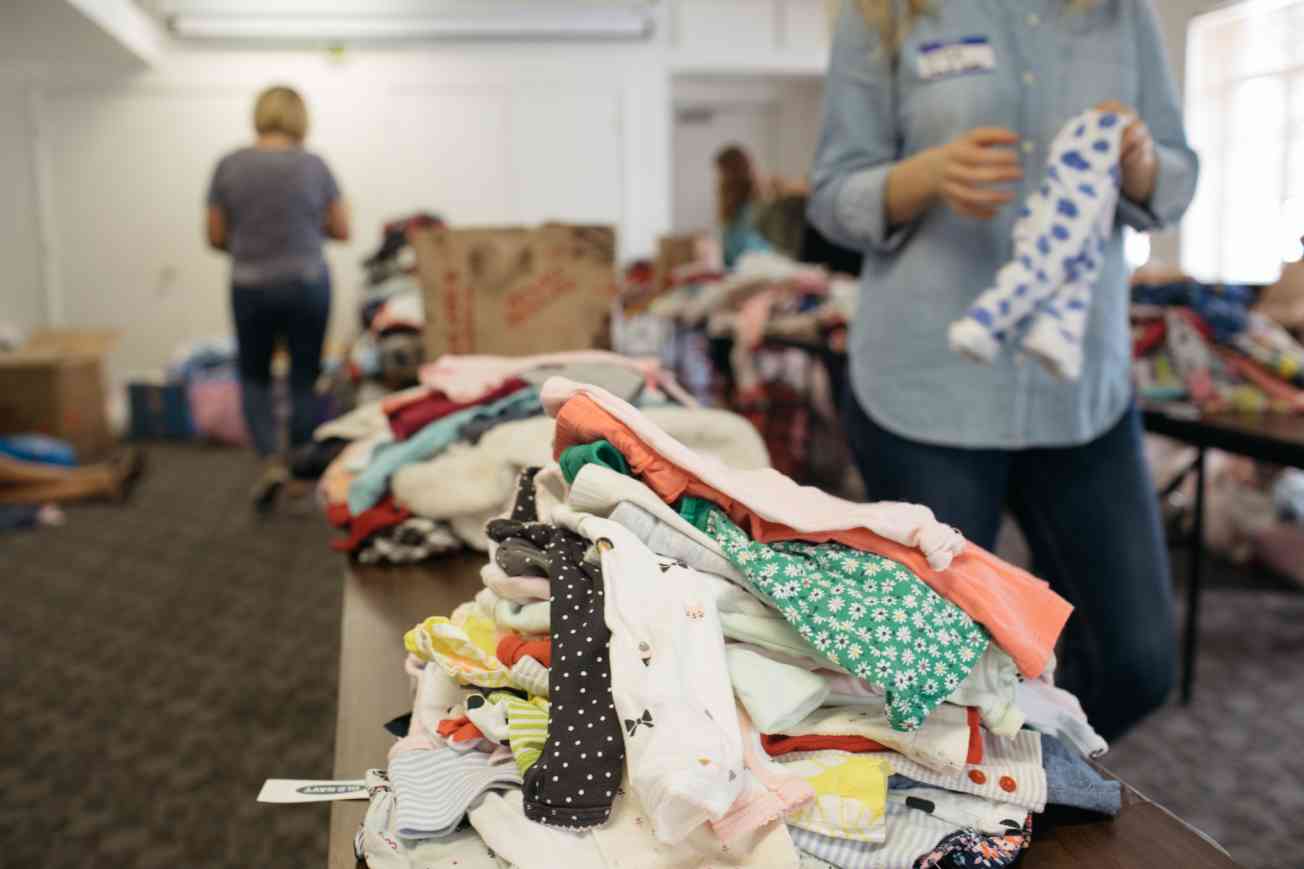How Refugee Baby Showers Connected a Community: Do Great Things With Fear and Humility

As part of our World Refugee Day Event, we had the privilege of interviewing Dr. Uzma Jafri. She fills many roles, including physician, business owner, medical director, and most importantly, mother of four.
It was during the first few months of her fourth child’s life when Dr. Jafri became interested in refugees. During the countless sleepless nights that accompany newborns, Dr. Jafri would watch coverage of the Syrian refugee crisis.
Dr. Jafri felt a pull to help those in the crisis. This led her to go abroad, leaving her young baby at home, to provide direct medical aid with a non-profit. While she was there, she noted the organization of the effort. The volunteers would put together baby showers, where new mothers would be provided with resources for the postpartum period.
Upon returning to her home in Arizona, Dr. Jafri knew there was more she could do in her own community. She saw a need to help new mothers as they navigate not only the loss of their village and maternal influences but would begin motherhood in an entirely new country. With the assistance of the nonprofit, Dr. Jafri decided to start holding baby showers, similar to the ones she saw while abroad. These baby showers are held biannually and provide women with the supplies needed for the first year of their child’s life.
Phoenix is a big hub for refugee resettlement, and while there are many organizations and groups helping, they often work in isolation. Rather than reinvent the wheel. Dr. Jafri started to organize. She connected with nonprofits, resettlement agencies, and charities to find the supplies and women who needed help.
“Don’t be afraid of titles of organizations or affiliations” Dr. Jafri remarks. They have worked with many surprising donors and their events even take place in a church. Community collaboration has been crucial to their success. The events bring individuals from all different backgrounds together and have blessed their community.
“You will find friends and allies in places you least expect …beautiful things will come from that.”

Since 2016, they have held nine baby showers. They have expanded to provide education and more resources alongside supplies. From teaching women to install car seats to offering free babysitting during the event, the baby showers now bless over 25 women per year.
Dr. Jafri encourages others to get involved in their communities. She summaries what she has learned with the phrase, “Do great things with fear and humility.”
Watch Dr. Uzma Jafri’s full interview:
World Refugee Day 2023 EventOfficial Statement on the Detention of Refugees and Ongoing Community Violence
With another death in Minnesota and continued violence toward individuals and groups standing up for their communities, we acknowledge the profound fear and uncertainty people are feeling--not just locally, but across the country.
On top of this, there are reports that refugees invited and admitted to our country through the U.S. Refugee Admission Program are now being detained, meaning that our new friends and neighbors feel that fear most acutely.
Refugees have already fled violence and persecution once. They came here legally, seeking safety. In moments like these, we reaffirm our commitment to building communities where refugees and immigrants can live without fear. Where they can go to work, send their children to school, and build lives of dignity and belonging.
We call for due process, accountability, and humanity in all immigration enforcement operations. We call upon our leaders to demand the demilitarization of our neighborhoods and cities. And we call on all of us to continue the work of welcoming and protecting those who have been forcibly displaced from their homes.